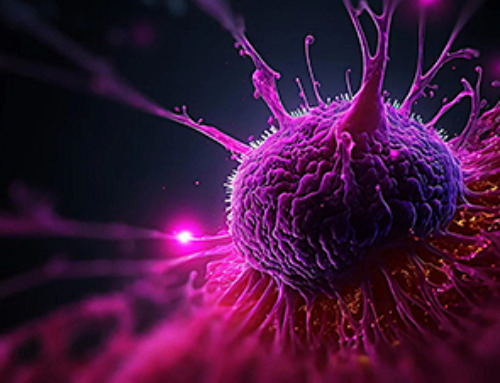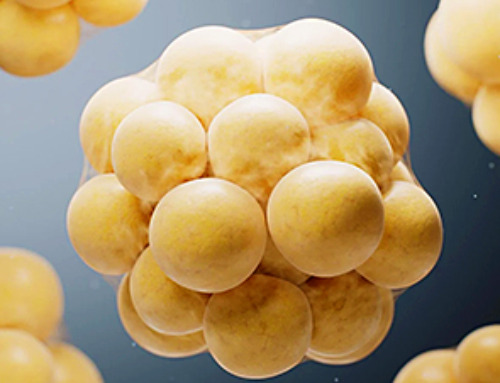Nearly three years into the pandemic, many of us now carry antibodies against the virus—due to an infection or two, a few doses of mRNA vaccine, or a round of monoclonal-antibody treatment. But not all immune responses are created equal, and how we first developed our antibodies may influence the character of our body’s response to SARS-CoV-2.
“Depending on the virus, feedback inhibition can either enhance immunity or inhibit it,” says Michel C. Nussenzweig, who co-led the study with colleagues Theodora Hatziioannou, Paul Bieniasz, and Marina Caskey. “Our results suggest that pre-existing SARS-CoV-2 antibodies can diversify the antibody response, which may increase the breadth of mRNA vaccines.”
Of guinea pigs and antibodies
Antibody feedback inhibition was first discovered at the turn of the century by pioneering epidemiologist Theobald Smith, who demonstrated that excess antibodies could inhibit the immune response to diphtheria in guinea pigs. It seemed like a curious twist—why would the same molecule that supposedly protects the animal from disease occasionally shut the immune system down?
We now know that viruses have multiple epitopes—stand-out bits of antigen that antibodies use to identify the virus and latch on to it. Once the body has produced strong antibodies for one epitope, the immune system moves on and diversifies, instead making antibodies that attach to other parts of the virus. Ideally, this increases the breadth of the immune response—if a virus mutates so that one epitope can no longer be recognized, for example, it might still be vulnerable to antibodies targeting other epitopes.
“Antibody feedback can be a very good thing,” Nussenzweig says. “You end up with a collection of neutralizing antibodies to many different parts of the virus, all of which are helpful.”
But in other cases, antibody feedback can be more harmful than helpful. HIV and influenza both have a limited number of epitopes—and if one epitope doesn’t yield very effective antibodies, a perfect storm may ensue. Upon detecting a surplus of minimally effective antibodies, the body will shut down its production of that line, inadvertently blocking the production of similar antibodies that could potentially have worked better.
Antibody feedback in COVID
To better understand how antibody feedback impacts COVID immunity, Nussenzweig and colleagues followed volunteers who received a single dose of monoclonal antibody treatment and, later, two doses of an mRNA vaccine. They found that these volunteers had markedly different immune responses than individuals who had received the mRNA vaccines alone.
Two doses of an mRNA COVID vaccine usually gives rise to a preponderance of memory B cells, which express antibodies that target one of three key parts of the receptor-binding domain of the spike protein, without which the coronavirus cannot infect a cell. As expected, Nussenzweig and colleagues found that about half of the antibodies obtained from individuals who received only the vaccines targeted so-called Class 1, 2, or 3 epitopes.
But in other cases, antibody feedback can be more harmful than helpful. HIV and influenza both have a limited number of epitopes—and if one epitope doesn’t yield very effective antibodies, a perfect storm may ensue. Upon detecting a surplus of minimally effective antibodies, the body will shut down its production of that line, inadvertently blocking the production of similar antibodies that could potentially have worked better.
“There are only a couple of places on the HIV virus that are worth targeting, and if the initial response blocks those epitopes, we won’t get a broadly neutralizing response,” Nussenzweig says.
The findings suggest that monoclonal antibodies received before vaccination may help diversify the immune response to COVID by increasing the breadth of mRNA vaccines. There may also be important lessons for boosting. “Because there are many targets on the receptor-binding domain that can neutralize the virus, antibody feedback is very helpful,” Nussenzweig says.
And whether the antibody surplus driving that feedback comes from monoclonal antibodies or additional vaccine booster, he says, “antibody feedback is very good for COVID.”
News
Deadly Pancreatic Cancer Found To “Wire Itself” Into the Body’s Nerves
A newly discovered link between pancreatic cancer and neural signaling reveals a promising drug target that slows tumor growth by blocking glutamate uptake. Pancreatic cancer is among the most deadly cancers, and scientists are [...]
This Simple Brain Exercise May Protect Against Dementia for 20 Years
A long-running study following thousands of older adults suggests that a relatively brief period of targeted brain training may have effects that last decades. Starting in the late 1990s, close to 3,000 older adults [...]
Scientists Crack a 50-Year Tissue Mystery With Major Cancer Implications
Researchers have resolved a 50-year-old scientific mystery by identifying the molecular mechanism that allows tissues to regenerate after severe damage. The discovery could help guide future treatments aimed at reducing the risk of cancer [...]
This New Blood Test Can Detect Cancer Before Tumors Appear
A new CRISPR-powered light sensor can detect the faintest whispers of cancer in a single drop of blood. Scientists have created an advanced light-based sensor capable of identifying extremely small amounts of cancer biomarkers [...]
Blindness Breakthrough? This Snail Regrows Eyes in 30 Days
A snail that regrows its eyes may hold the genetic clues to restoring human sight. Human eyes are intricate organs that cannot regrow once damaged. Surprisingly, they share key structural features with the eyes [...]
This Is Why the Same Virus Hits People So Differently
Scientists have mapped how genetics and life experiences leave lasting epigenetic marks on immune cells. The discovery helps explain why people respond so differently to the same infections and could lead to more personalized [...]
Rejuvenating neurons restores learning and memory in mice
EPFL scientists report that briefly switching on three “reprogramming” genes in a small set of memory-trace neurons restored memory in aged mice and in mouse models of Alzheimer’s disease to level of healthy young [...]
New book from Nanoappsmedical Inc. – Global Health Care Equivalency
A new book by Frank Boehm, NanoappsMedical Inc. Founder. This groundbreaking volume explores the vision of a Global Health Care Equivalency (GHCE) system powered by artificial intelligence and quantum computing technologies, operating on secure [...]
New Molecule Blocks Deadliest Brain Cancer at Its Genetic Root
Researchers have identified a molecule that disrupts a critical gene in glioblastoma. Scientists at the UVA Comprehensive Cancer Center say they have found a small molecule that can shut down a gene tied to glioblastoma, a [...]
Scientists Finally Solve a 30-Year-Old Cancer Mystery Hidden in Rye Pollen
Nearly 30 years after rye pollen molecules were shown to slow tumor growth in animals, scientists have finally determined their exact three-dimensional structures. Nearly 30 years ago, researchers noticed something surprising in rye pollen: [...]
NanoMedical Brain/Cloud Interface – Explorations and Implications. A new book from Frank Boehm
New book from Frank Boehm, NanoappsMedical Inc Founder: This book explores the future hypothetical possibility that the cerebral cortex of the human brain might be seamlessly, safely, and securely connected with the Cloud via [...]
How lipid nanoparticles carrying vaccines release their cargo
A study from FAU has shown that lipid nanoparticles restructure their membrane significantly after being absorbed into a cell and ending up in an acidic environment. Vaccines and other medicines are often packed in [...]
New book from NanoappsMedical Inc – Molecular Manufacturing: The Future of Nanomedicine
This book explores the revolutionary potential of atomically precise manufacturing technologies to transform global healthcare, as well as practically every other sector across society. This forward-thinking volume examines how envisaged Factory@Home systems might enable the cost-effective [...]
A Virus Designed in the Lab Could Help Defeat Antibiotic Resistance
Scientists can now design bacteria-killing viruses from DNA, opening a faster path to fighting superbugs. Bacteriophages have been used as treatments for bacterial infections for more than a century. Interest in these viruses is rising [...]
Sleep Deprivation Triggers a Strange Brain Cleanup
When you don’t sleep enough, your brain may clean itself at the exact moment you need it to think. Most people recognize the sensation. After a night of inadequate sleep, staying focused becomes harder [...]
Lab-grown corticospinal neurons offer new models for ALS and spinal injuries
Researchers have developed a way to grow a highly specialized subset of brain nerve cells that are involved in motor neuron disease and damaged in spinal injuries. Their study, published today in eLife as the final [...]





















